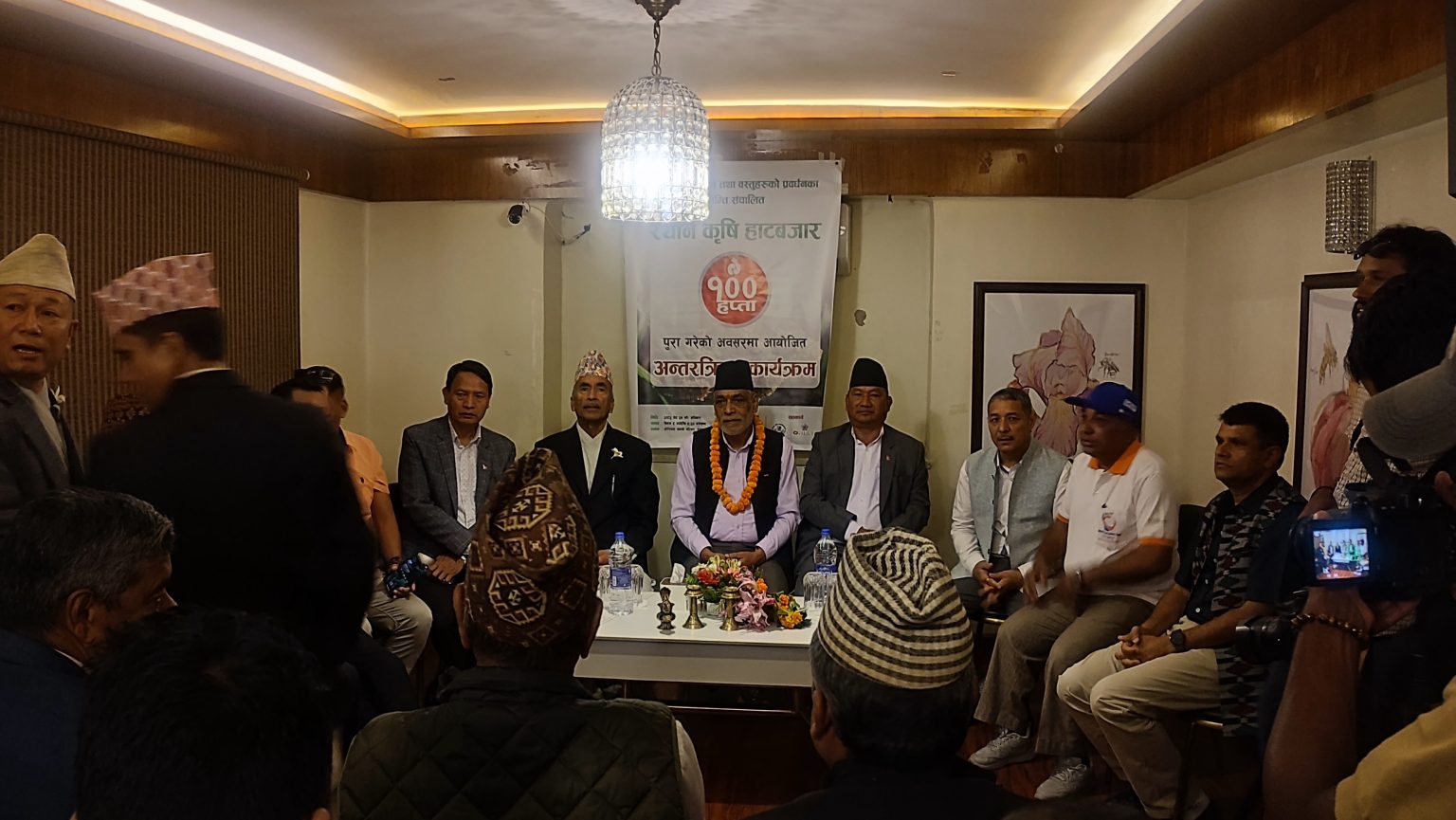Government prioritizes indigenous crops and pesticide-free farming: Minister Adhikari
Kathmandu: Minister for Agriculture and Livestock Development Ramnath Adhikari announced that the government is advancing programs to promote Nepali traditional crops and pesticide-free food production through the upcoming fiscal year’s budget.
 Speaking at a program marking 100 weeks of the ‘Indigenous Agriculture Market’ run by Agri Product Nepal, Minister Adhikari emphasized the need to preserve indigenous crops, traditional skills, and promote local consumption to reduce food imports.
Speaking at a program marking 100 weeks of the ‘Indigenous Agriculture Market’ run by Agri Product Nepal, Minister Adhikari emphasized the need to preserve indigenous crops, traditional skills, and promote local consumption to reduce food imports.
He highlighted growing public awareness about pesticide-free, locally grown food and stressed that “now, there is a need to conserve and develop local seeds in a timely manner.” He also proposed exploring legal cultivation of medicinal crops, including cannabis, to reduce economic dependency and increase domestic revenue.
Former Minister Sher Bahadur Tamang called for action-oriented policies to protect local crops, urging interest-free loans for farmers instead of subsidies, and support for branding traditional products like millet alcohol and marijuana.
Dr. Ram Krishna Shrestha, Joint Secretary at the Ministry, noted that since fiscal year 2077/78, the government has been allocating conditional grants to nearly 300 municipalities to support traditional crops, local breeds, and technology.
Tilak Dhakal, Chair of Agri Product Nepal, shared that the indigenous agriculture market campaign, launched in Shrawan 2080 BS, has engaged 35 stalls weekly, attracting 300–400 customers and generating over Rs 30 million in turnover.
Other speakers, including local government representatives, private sector leaders, and environmental advocates, such as Dr. Ghanashyam Gurung (WWF Nepal), Rana Bahadur Tamang, and entrepreneur Jyotsana KC, warned against the loss of indigenous seed varieties, calling it a threat to Nepali culture and food sovereignty.
The program highlighted the importance of unified efforts from the government, private sector, farmers, and consumers to sustain Nepal’s traditional agriculture and ensure economic resilience.









Comments